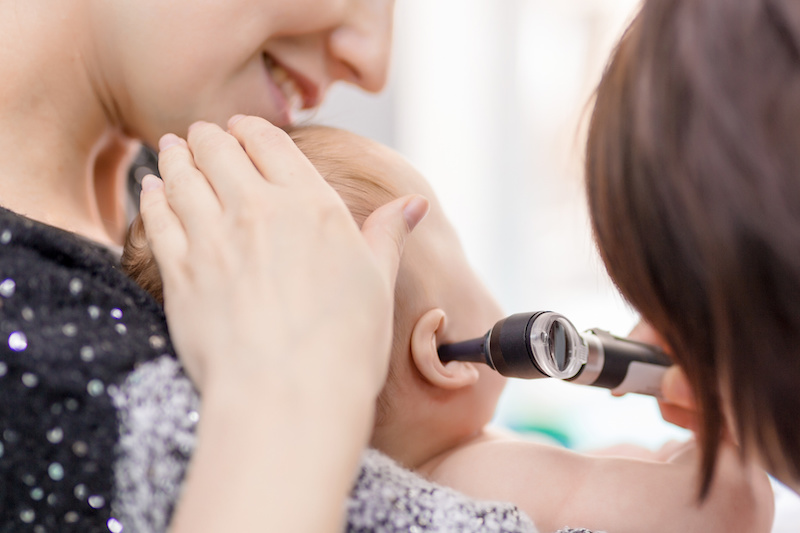As a parent, it can be difficult to know when your baby is experiencing pain or discomfort, especially when they are unable to communicate with words. One common ailment that babies may experience is an ear infection, which can cause pain and discomfort in the ear. In this blog post, we will discuss the signs and symptoms of an ear infection in babies, as well as what you can do to help your little one feel better.
Signs and Symptoms
There are a few key signs and symptoms that can indicate that your baby has an ear infection. These include:
Ear pain: Your baby may tug or pull on their ear or cry when lying down on that side.
Fever: Your baby’s body temperature may rise to 100.4°F (38°C) or higher.
Irritability: Your baby may be fussy, cranky, or have trouble sleeping.
Loss of appetite: Your baby may refuse to eat or drink.
Trouble hearing: Your baby may have trouble hearing or responding to sounds.
Fluid draining from the ear: Your baby’s ear may have a discharge that is yellow or white in color.
If your baby exhibits any of these symptoms, it is important to seek medical attention from a pediatrician or healthcare provider.
Causes of Ear Infections in Babies
Ear infections in babies are typically caused by a bacterial or viral infection that affects the middle ear. The middle ear is the space behind the eardrum that contains the tiny bones that help to transmit sound. When this space becomes infected, it can cause inflammation and fluid buildup, leading to pain and discomfort.
Risk Factors for Ear Infections in Babies
There are several factors that can increase your baby’s risk of developing an ear infection. These include:
Age: Infants and young children are more prone to ear infections than older children and adults.
Exposure to secondhand smoke: Babies who are exposed to secondhand smoke are more likely to develop ear infections.
Bottle feeding: Babies who are bottle-fed may be at a higher risk of developing ear infections than those who are breastfed.
Family history: If there is a family history of ear infections, your baby may be more likely to develop them.
Seasonal factors: Ear infections are more common during the fall and winter months.
Treatment and Prevention
If your baby is diagnosed with an ear infection, there are several treatment options available. These may include:
Antibiotics: If the ear infection is bacterial, your baby’s healthcare provider may prescribe antibiotics to help clear the infection.
Pain relief: Over-the-counter pain relievers such as acetaminophen or ibuprofen can help to relieve pain and reduce fever.
Ear drops: If there is fluid draining from your baby’s ear, ear drops may be prescribed to help clear the infection.
Preventions
To help prevent ear infections in babies, there are several steps you can take. These include:
Breastfeeding: Breastfeeding can help to reduce your baby’s risk of developing ear infections.
Vaccinations: Making sure your baby is up to date on their vaccinations can help to prevent infections that can lead to ear infections.
Avoiding secondhand smoke: Keeping your baby away from secondhand smoke can help to reduce their risk of developing ear infections.
Practicing good hygiene: Regular hand washing and keeping your baby’s toys and other items clean can help to prevent the spread of germs that can lead to infections.
Khalid Irfan is a Fitness expert who enjoys spending time in gym. He also enjoys being in the outdoors and exploring new opportunities whenever they arise as well as researching new topics to expand his horizons.

Leave a Reply